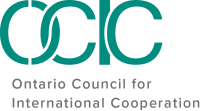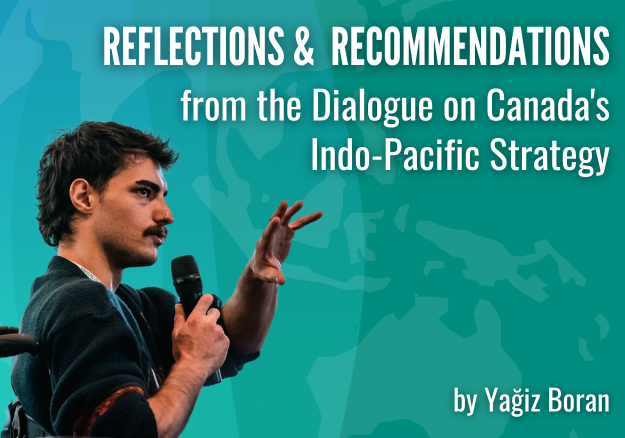Reflections and Recommendations from the Dialogue on Canada's Indo-Pacific Strategy
By Yagiz Boran | November 8, 2024 | Photos by Sid Naidu
Summary of the Indo-Pacific Strategy Dialogue
The Indo-Pacific Dialogue, hosted on October 30th at Centennial College by the Ontario Council for International Cooperation (OCIC), brought together a vibrant assembly of policymakers, experts, and advocates. This critical discussion focused on strengthening Canada’s ties within the Indo-Pacific region, guided by the insights of Aly-Khan Rajani, Director of the Indo-Pacific Strategy Secretariat at Global Affairs Canada, and Karlye Wong, Senior Development Officer, Disaster Risk and Resilience at GAC.
Throughout the event, the dialogue was rich with discussions on strategic engagement, highlighting the necessity of strengthening cultural and social engagement, economic integration, and environmental sustainability to foster peace and prosperity across the Indo-Pacific. The event emphasized the importance of including regional and international cooperation within Human Rights and Feminist International Assistance Policy frameworks in Canada’s strategy, ensuring that growth and development are equitable and benefit all layers of society.
Key takeaways from the dialogue underscored the need for resilient partnerships to enhance regional security and the critical role of inclusive economic policies to ensure prosperity is widely shared. Panelists argued that local women’s groups possess unique insights and solutions to community-specific challenges, making their involvement crucial for crafting effective and lasting policies. Moreover, participants stressed the importance of innovative approaches to environmental management and disaster response, crucial for mitigating climate impacts and preparing for natural disasters, considering local knowledge and the role of grassroots organizations.
Special thanks were extended to the panelists, including Muzhda Akbari of CodeGreenAfg Organization, Mike Bowles of the Aga Khan Foundation Canada, Naba Gurung of the Primate’s World Relief and Development Fund (PWRDF), and Najia Zewari of the Global Women’s Network, with Rano Mansurova of Acted Canada expertly moderating the session. Their contributions, along with the meticulous efforts of Centennial College staff and student notetakers, were pivotal in framing the discussions that will shape the forthcoming report detailing the dialogue’s comprehensive outcomes.
Range of Insights, Recommendations, and Perspectives from Participants at the Dialogue Tables

Yagiz Boran
OCIC Youth Policy-Makers Hub Member & Centennial College Student
Yagiz (he/him) is a passionate advocate for inclusive and intersectional policy-making, particularly focusing on the challenges faced by those living with disabilities. As an international student with a strong academic background in Psychology and International Development, Yagiz brings a unique perspective highlighting the interconnectedness of global issues like gender inequality, inclusive education, and disability rights. His lived experience and academic knowledge enable him to understand the complex barriers faced by marginalized groups of different backgrounds, advocating for holistic and sustainable solutions.







